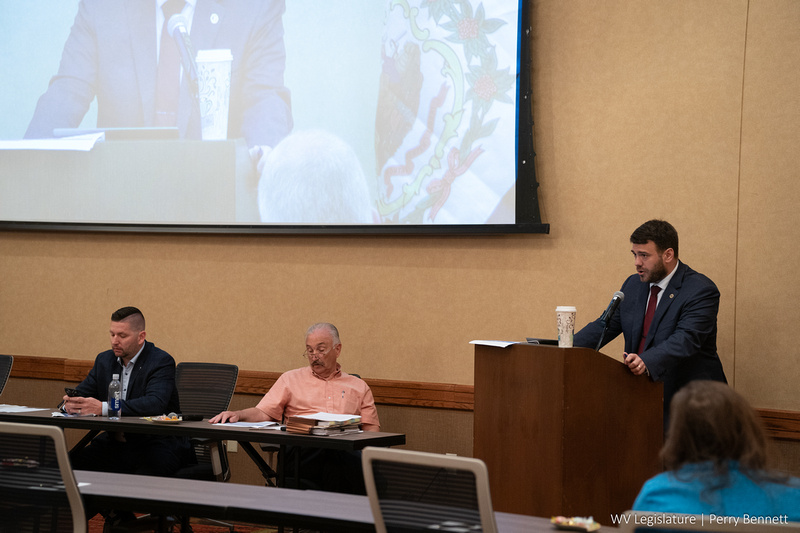West Virginia is bracing for significant financial challenges as the state anticipates increased costs associated with public employee insurance and educational support for students outside the public school system. These upcoming financial pressures were outlined by Peter Shirley, Deputy Secretary of the Department of Revenue, during a meeting with the Joint Standing Committee on Finance at Stonewall Resort State Park. Shirley emphasized the importance of watching future revenue trends and planning accordingly to address these challenges.
One major concern is the anticipated cost increase through the Public Employees Insurance Agency (PEIA). State financial officials project a $49 million increase for fiscal year 2027 and a further increase of $56 million for fiscal year 2028. The administration, led by Morrisey, is considering a special legislative session to focus on the escalating costs of health insurance for public employees. “PEIA is a topic of significant discussion,” Shirley told lawmakers, underscoring the need to stabilize the insurance agency for the long term.
In addition to insurance costs, the Hope Scholarship presents another financial challenge for the state. This scholarship provides financial support for families pursuing educational options outside the public school system, and its base cost is estimated at $190 million for fiscal year 2027. Shirley explained to lawmakers that the scholarship amount per student is expected to be $5,267.38 for the 2025-2026 school year. The total financial impact on the state will depend on the number of students who choose to participate in the program. “Refining these numbers is crucial as we move forward and understand enrollment patterns for the four-year scholarship,” Shirley added.
Federal changes also pose potential challenges to West Virginia’s financial landscape. Proposed modifications to the federal tax code, provider taxes, Medicaid, and the Supplemental Nutrition Assistance Program could significantly impact state finances. These changes necessitate vigilant monitoring and strategic planning to mitigate any adverse effects on the state’s budget.
On a different note, Shirley highlighted West Virginia’s processing of a rebate on personal property taxes for vehicles. To date, the car rebate program has disbursed $128.6 million, with an original budget allocation of $200 million for the fiscal year. “There’s still ample budget room,” Shirley noted, emphasizing the importance of tracking the number of people claiming the rebate and the total payout.
As West Virginia navigates these financial challenges, state officials are focused on maintaining a balanced budget while addressing the increasing costs of insurance, education, and potential federal changes. Stakeholders are urged to stay informed and engaged as the state formulates strategies to manage these fiscal pressures effectively.
Note: This article is inspired by content from https://wvmetronews.com/2025/06/23/financial-official-looks-ahead-to-increased-costs-of-peia-hope-scholarship-plus-federal-changes/. It has been rephrased for originality. Images are credited to the original source.

